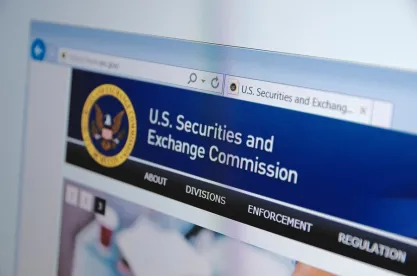The Securities and Exchange Commission has brought a growing number of enforcement actions against digital asset market participants, according to a new report released today by Cornerstone Research. The analysis covers SEC enforcement from the first cryptocurrency-related action in 2013 through the end of 2020.
The report, SEC Cryptocurrency Enforcement: Q3 2013–Q4 2020, found that the SEC brought 75 enforcement actions, along with a number of subpoenas and follow-on administrative orders, between July 1, 2013, and December 31, 2020. Defendants and respondents included cryptocurrency issuers, brokers, exchanges, and other service providers. Of the 75 enforcement actions, 43 were litigated in U.S. district courts and 32 were resolved within the SEC as administrative proceedings.
As of early March this year, the SEC has settled over 70% of the enforcement actions for more than $1.77 billion in total monetary penalties.
“In the last seven years or so, the SEC has established itself as one of the main regulators policing the cryptocurrency space,” said Simona Mola, the report’s author and a senior manager at Cornerstone Research. “As of early March this year, the SEC has settled over 70% of the enforcement actions for more than $1.77 billion in total monetary penalties.”
The most common allegations over the study period involved allegations of fraud (52%) and unregistered securities offerings (69%). Twenty-eight actions (37%) contained allegations of both fraud and unregistered securities offerings.
More than half of all enforcement actions alleged unregistered securities offering violations related to initial coin offerings, or ICOs. The agency’s ICO enforcement activity heightened in July 2017 as it released the DAO Report of Investigation, where the SEC used the Howey test from the U.S. Supreme Court decision of 1946 to determine whether a token is an investment contract.
“ICOs have been a frequent target of SEC enforcement actions, but this may be changing as issuers explore other potential funding sources,” said Abe Chernin, a Cornerstone Research vice president and head of the firm’s consumer finance practice. “While the SEC will continue to focus on fraud, there is an increasing expectation that the new administration develop a clearer regulatory approach and pursue greater interagency coordination to foster innovation in cryptocurrency markets.”
Highlights
-
In addition to enforcement actions, the SEC has issued 19 trading suspension orders since 2013.
-
In 34 of the 43 litigations that the SEC has brought so far, the defendants were a mix of individuals and firms. In a few litigations, the defendants were individuals only (seven actions) or firms only (two actions).
-
In 19 of the 32 administrative proceedings, the respondents were firms only. The SEC charged individuals only in six actions, or a mix of individual and firms in seven actions.
-
Between Q3 2013 and Q4 2020, more than half of the litigations filed by the SEC were resolved.
-
About half of the 43 actions litigated in U.S. courts occurred in the state of New York, with 18 in the Southern District of New York and four in the Eastern District of New York.




 />i
/>i

